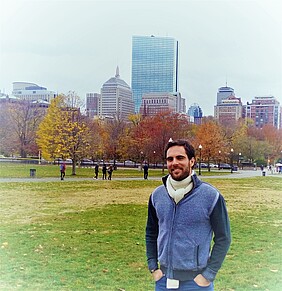Considered by many a prettiest season, this is a time of the year when the city becomes embellished by foliage colors. Boston is academically vibrant environment, which houses some of the most renowned universities in the world. I am fortunate to carry out research (Nov 2016 – Feb 2017) in the lab headed by Prof. Stephen Farmer, which is part of the Boston University Medical Center. Prof. Farmer is an accomplished biochemist who continues to make contributions to deciphering the mechanisms that regulate the formation and function of white and brown adipocytes. My colleagues in the new lab - predominantly postdoctoral researchers - are skilled and resourceful but also kind with sharing their knowledge.
My experiments at the University of Luebeck mainly employed in vivo models toward understanding the role of Nesfatin-1 in metabolic processes. This approach led to the discovery that centrally administered Nesfatin-1 promotes energy expenditure and body weight reduction, notably via the central melanocortin system and conventional thermogenic pathways in brown adipose tissue.
Hence, the Farmer lab provides a great setting for expanding these findings on the cellular level. My general aim here is to investigate pathway through which Nesfatin-1 supports the communication between the brain and peripheral sites, to elicit satiety responsiveness. Furthermore, I also intend to study the ability of mature brown adipocytes to self-regulate their thermogenic machinery via Nesfatin-1, as well as the potential influence of Nesfatin-1 on transforming inguinal white adipocytes into metabolically active “brite” adipocytes.
I believe my research experience in the Farmer lab will not only benefit my PhD project, but will also broaden my knowledge in biomedical science.
Luka Levata







